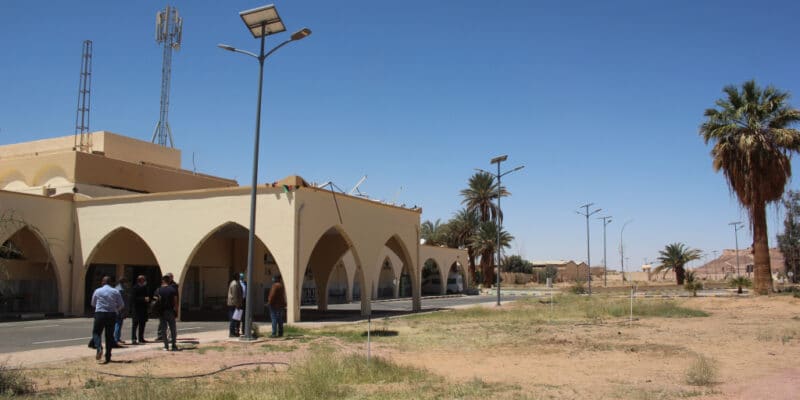The United Nations Development Programme (UNDP) has completed the installation of 284 solar street lights at Sebha airport in Libya. This installation covers the courtyards, car parks, internal roads of Sebha airport, and two other segments of the road linking the airport to the city center.
According to UNDP, the installation will provide light to the people living near the airport after power outages, allowing them to continue their activities after dark and serve more than 7,000 travelers arriving and departing from Sebha Airport on a daily basis.
First phase of a major solar street lighting project
This is the first phase of a major solar street lighting project that will see the installation of 1,070 solar-powered street lights along 10 kilometers at least, from the airport to Sebha, an oasis city in the southwestern region of the North African country.
Also Read: Egypt-Libya electricity interconnection line capacity to be increased
The entire street lighting project is part of the Stabilisation Facility for Libya (SFL) a Libyan-led initiative supported by fourteen international donors and implemented by UNDP with an aim to bridge the critical period of transition from the initial period of humanitarian relief towards mid-and long-term structural and sector-specific support.
It includes time-bound quick interventions at the municipality level that seek to enhance the legitimacy of the Government of National Accord (GNA) within the Libyan population through provision of concrete improvements and peace dividends at the community level through rehabilitation of critical infrastructure, building the capacity of local authorities to address the needs of their population, and enhancing local mediation and conflict resolution capacities and processes.
Contributing to the achievement of 2030 Agenda for Sustainable Development and MDG7
The success of this solar street lighting project the UNDP says it contributes to the achievement of the 2030 Agenda for Sustainable Development and of MDG7 (clean and affordable energy).
The project is also improving security and reducing crime, facilitating economic activities, thus strengthening social cohesion in the North African country.

Leave a Reply